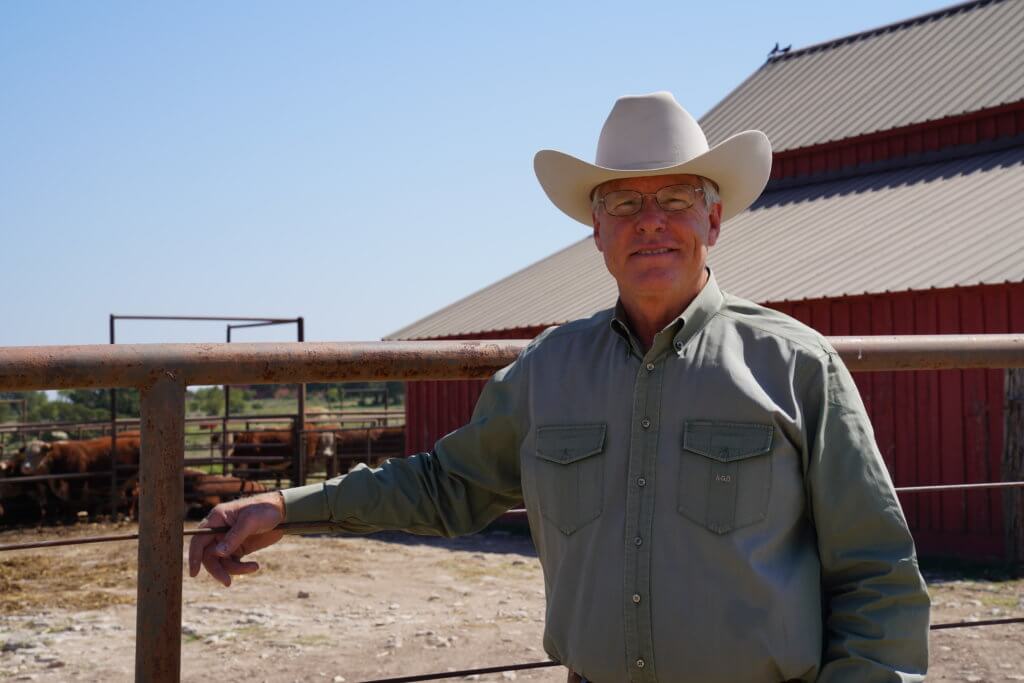by Arthur Uhl, first vice president, Texas & Southwestern Cattle Raisers Association

Cattle marketing has always been an important issue to the Texas & Southwestern Cattle Raisers Association, and at times, one of the most difficult.
A rancher’s ability to have a fair chance to be profitable is a most important objective to TSCRA.
That is why TSCRA supports and continues to fight for a transparent and level playing field for cow-calf producers when marketing their cattle.
TSCRA has done this while continuing to advocate for an individual’s freedom and right to choose how they buy and sell their cattle. This approach is what TSCRA members deserve and expect from their association, and it has served us well for more than 144 years.
Over the last few years, we have been blessed to witness record consumer demand for beef. It wasn’t that long ago when things looked much different for our industry. However, now that this accelerated demand is occurring during a time of extreme labor shortages, decreased packing capacity, and a global pandemic that included panic buying and the closure of many restaurants, cow-calf producers have not been able to fairly capture the benefits of this increased demand while others in our industry have. This is not acceptable.
A case in point is the recent JBS settlement in a price-fixing case. Their settlement should be viewed as an admission of guilt, and TSCRA supports further explanation and investigation.
The major disparity between live cattle prices and beef prices has become a long-term problem requiring well-reasoned, long-term solutions. With an industry as complex and vital as ours, these solutions must stand the test of time and avoid unintended consequences that could harm cow-calf producers in the long run.
To that end, TSCRA supports and has been advocating for the enforcement of existing antitrust laws, increased packer competition and capacity, and more transparency in the prices that packers are offering and receiving.
However, while doing so, we have stayed true to our fundamental belief of free enterprise and the rights of all those in our industry to buy and sell cattle however and whenever they want, legally and ethically.
TSCRA has put its money where its mouth is by not only publicly supporting the U.S. Department of Justice investigation of the packers, but also numerous pieces of legislation and executive and regulatory actions to increase the transparency of packers and increase packing capacity, especially at the local and regional levels.
More specifically, TSCRA supports a requirement that each packer reports the number of cattle they purchase through negotiated trade each week by plant and region. TSCRA also supports the continuation of Livestock Mandatory Reporting, or LMR, a vital transparency tool that provides other critical market data from packers.
Some in our industry are calling for government mandates which would require packers to achieve a certain level of negotiated trade. This sentiment is understandable given the times we are currently in. In fact, TSCRA thoroughly studied this option and once thought it could have merit if developed and implemented properly.
However, while having a mandate on the packers to negotiate trade on a certain percentage of cattle may sound good, there are currently more questions than answers.
What research and data will be used to establish the percentages? How can there be a one-size-fits-all mandate percentage for every region of the U.S? Is there a guarantee that a mandate of this nature will put more money in the pockets of cow-calf producers? Even worse, what if it ends up costing us more?
Government mandates in the market may indeed apply pressure on the packers, but they may also bring their share of problems with no guaranteed return. Getting the government overly involved in our markets may make matters worse. It is a slippery and uncertain road to go down that might very well set a precedent for a future mandate on how we as cow-calf producers market our cattle or something else that we don’t like and can’t stop.
TSCRA is not opposed to other types of legislative and regulatory solutions to deal with this problem, but we need to be careful what we ask for. These solutions must be based on the best research and data available. We do not currently have that information, but like many, we want it and support the means to get it.
Greater transparency in packer prices and actions will be a key factor in achieving our goals. Transparency leads to more and better information which in turn helps lay a foundation that can be used for change.
Complicated problems get solved by those who have persistence and perseverance. There is no better example of this than we, as cow-calf producers. We didn’t get in this position overnight, and there is no silver bullet, but TSCRA will continue the fight and keep the pressure on the packers.
###
